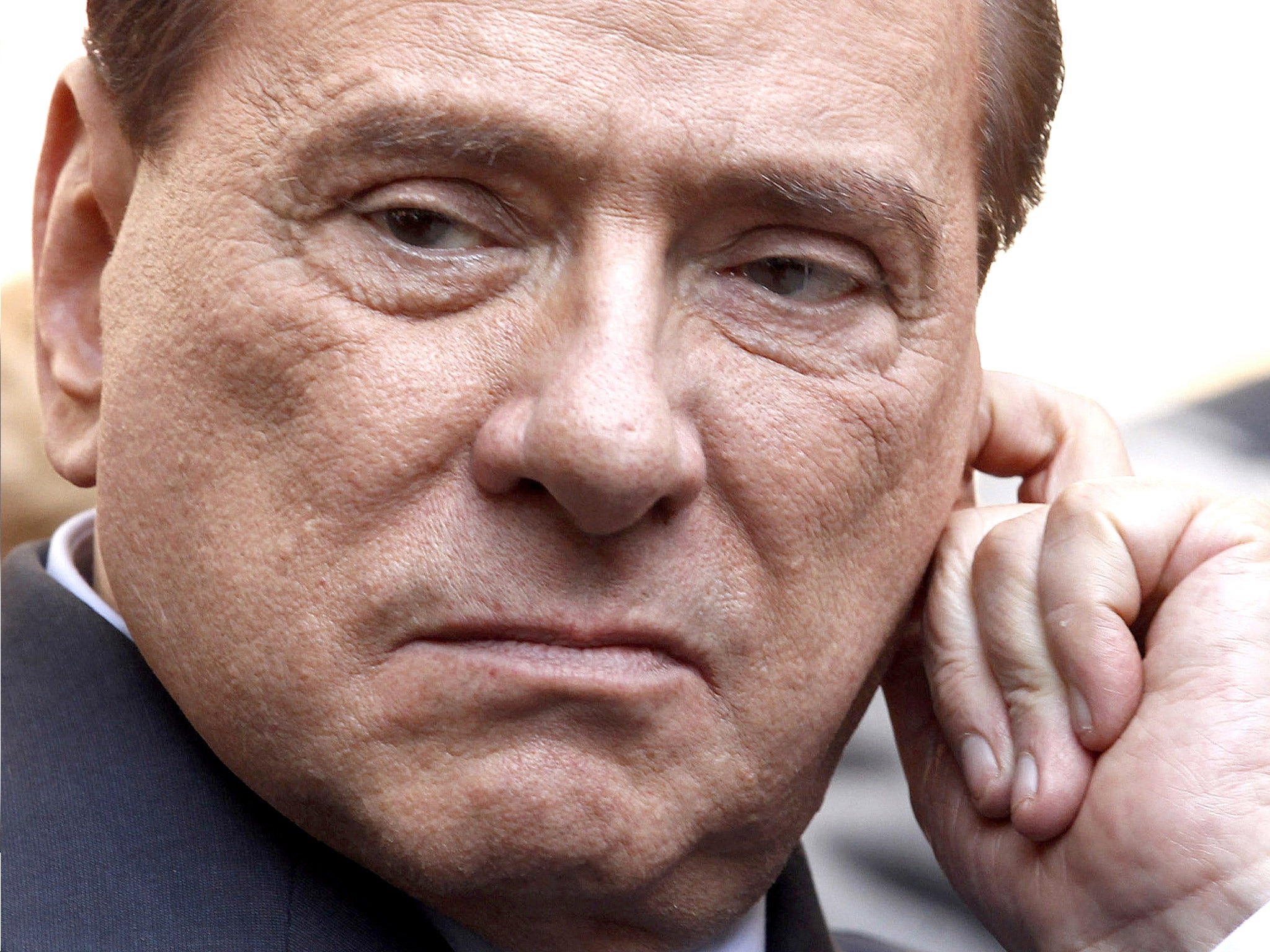Silvio Berlusconi to learn fate in tax fraud case ‘at end of the month’
If the ‘Telfon Tycoon’ is found guilty, there will be no last-minute legal manoeuvres or statutes of limitation that can save him

The final day of reckoning for Silvio Berlusconi will come much sooner than anyone expected; the Supreme Court of Cassation has announced it is likely to make its definitive ruling on tax fraud charges against the tycoon by the end of this month.
If the court decides the former Italian premier is guilty, justice will finally have caught up with the ‘Telfon Tycoon’, and this time no last-minute legal manoeuvres or statutes of limitation can save him.
The original sentence handed to the 76-year-old in October – four years incarceration and a five-year ban on holding office for having dodged millions of euros in taxes by channelling huge sums from his broadcast empire into overseas slush funds – will kick in.
In response to the decision on Tuesday, centre-left pundits have been gleefully discussing the prospect of the billionaire being forced to start a period of community service by the end of the summer. Convicts over the age of 70 are rarely incarcerated due to Italian sentencing guidelines, meaning Mr Berlusconi would almost certainly avoid jail. But a year-long mix of community service and house arrest would be possible if the court upholds the guilty verdict. The Senate will be obliged to bar him from parliament and he will be labelled a criminal.
Mr Berlusconi’s supporters have claimed the unusual speed with which the supreme court would make its verdict is evidence of the judiciary’s bias against the three-time premier.
Mr Berlusconi’s People of Freedom (PDL) Party organised a one-day strike in parliament in protest at the Court’s decision to start hearings on 30 July. Given the slow progress of most appeals in Italy, news the judges would open the hearing this month took everyone by surprise. The verdict had been expected around November. Anna Maria Bernini, a senator and spokesperson for the PDL party, called the scheduling “simply incredible”? .
But the Cassation Court insisted the case had to be heard quickly to prevent at least one of the charges expiring in August under the statute of limitations.
Join our commenting forum
Join thought-provoking conversations, follow other Independent readers and see their replies
Comments